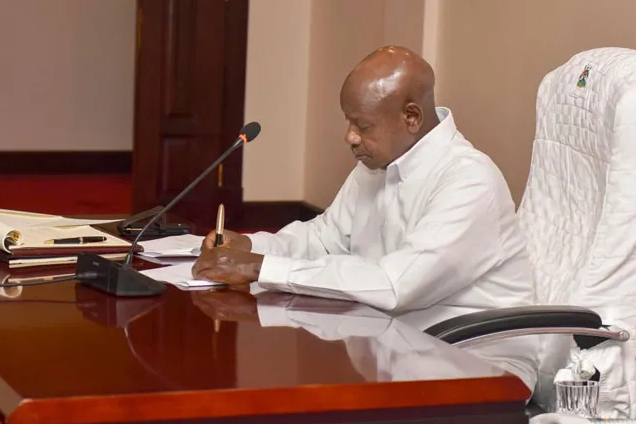Amnesty has called for scrapping of the new Computer Misuse Act claiming that it will be weaponized against critics, including political opponents.
On 9th September 2022, Uganda’s Parliament passed the Computer Misuse (Amendment) Bill 2022 to amend six sections of the already repressive Computer Misuse Act, of 2011.
Last week, President Yoweri Museveni signed the Computer Misuse bill into Law. The Act Among others prohibits the sharing of any information relating to a child without authorization from a parent or guardian; prohibits the sending or sharing of information that promotes hate speech; provides for the prohibition of sending or sharing false, malicious and unsolicited information.
“This piece of legislation threatens the right to freedom of expression online, including the right to receive and impart information, on the pretext of outlawing unsolicited, false, malicious, hateful, and unwarranted information. It is designed to deliberately target critics of the government and it will be used to silence dissent and prevent people from speaking out,” said Muleya Mwananyanda, Amnesty International Director for East and Southern Africa.
“While it has useful provisions regarding the protection of the right to privacy, including child protection and responsible coverage of children, it introduces punitive penalties for anyone accused of so-called hate speech.”
President Museveni signed into law the Computer Misuse (Amendment) Act, which bars individuals convicted under the new legislation from holding public office for 10 years, reinforcing state control over online freedom of expression, including by political opposition groups. Leaders or public officers will also be dismissed or forced to vacate office upon conviction.
Those found to have breached the draconian law face fines of up to 15 million Ugandan shillings (about US$3,940) and imprisonment of up to seven years.
The law defines “hate speech” broadly, stipulating, in part that, “A person shall not write, send or share any information through a computer, which is likely to – (a) ridicule, degrade or demean another person, group of persons, a tribe, an ethnicity, a religion or gender; (b) create divisions among persons, a tribe, an ethnicity, a religion or gender; or (c) promote hostility against a person, group of persons, a tribe, an ethnicity, a religion or gender.”
The law further makes vague provisions for sharing of “unsolicited information.”
It also states that “A person shall not send to or share with another person unsolicited information through a computer” and “A person shall not send, share or transmit any misleading or malicious information about or relating to any person through a computer.”
“Authorities in Uganda must repeal this piece of legislation and ensure that any future law guarantees checks and balances, including freedom of expression both offline and online,” said Muleya Mwananyanda.
“Ugandans must be able to exercise their right to freedom of expression without fear of being targeted by the criminal justice system.”








